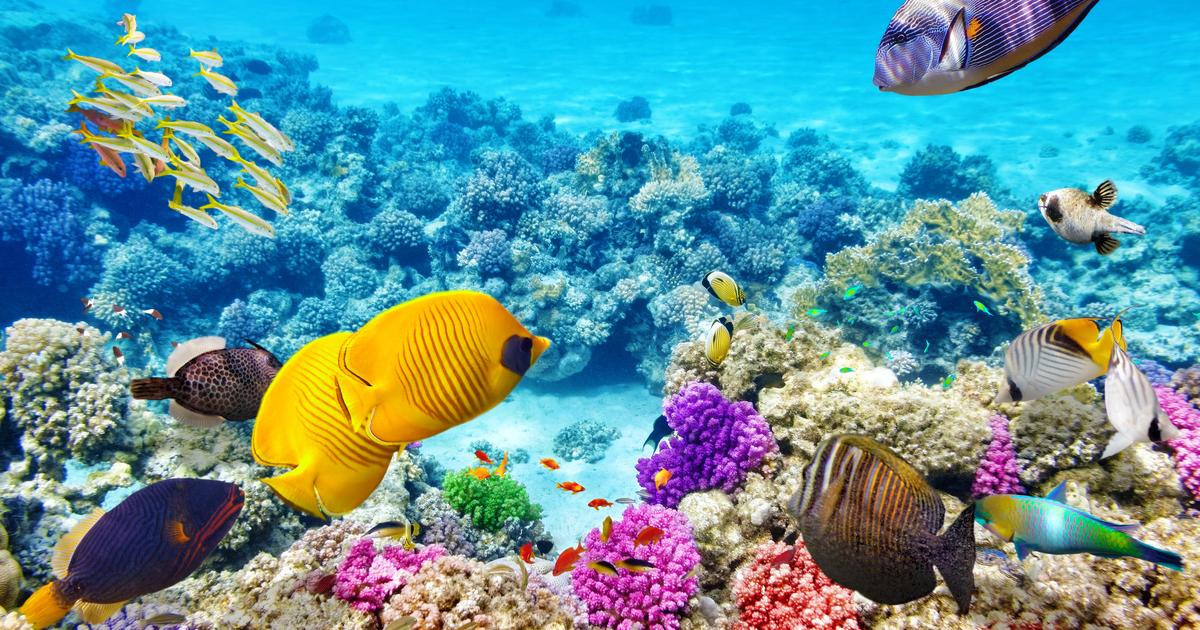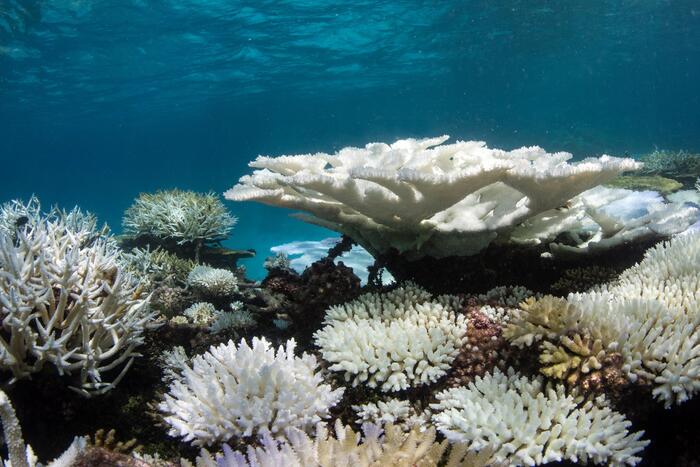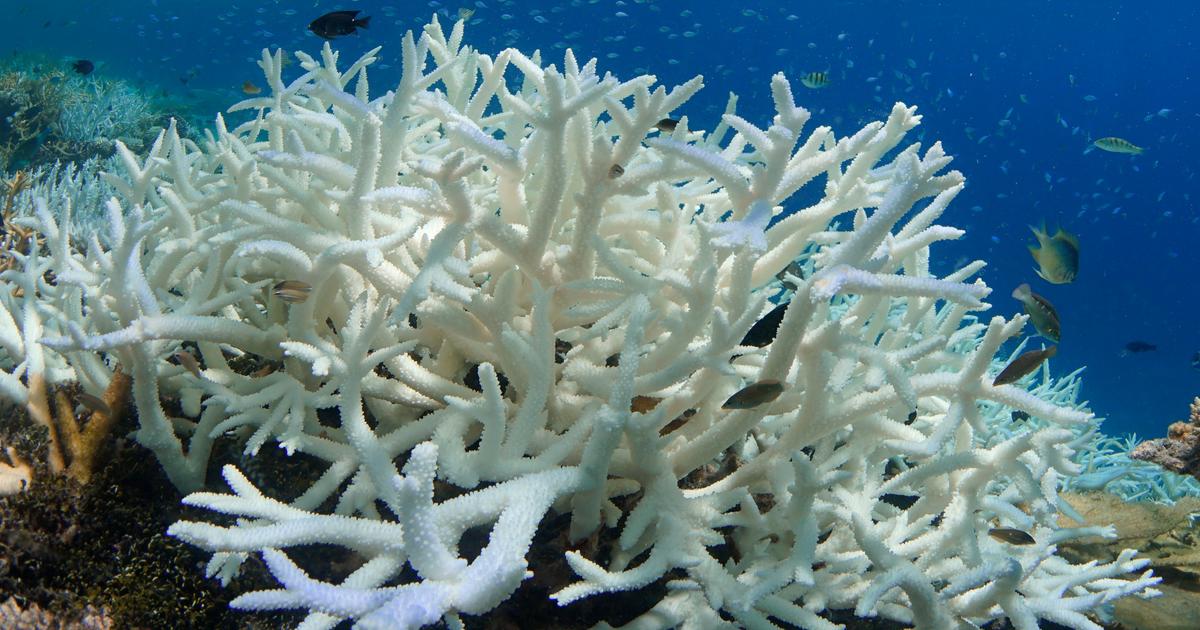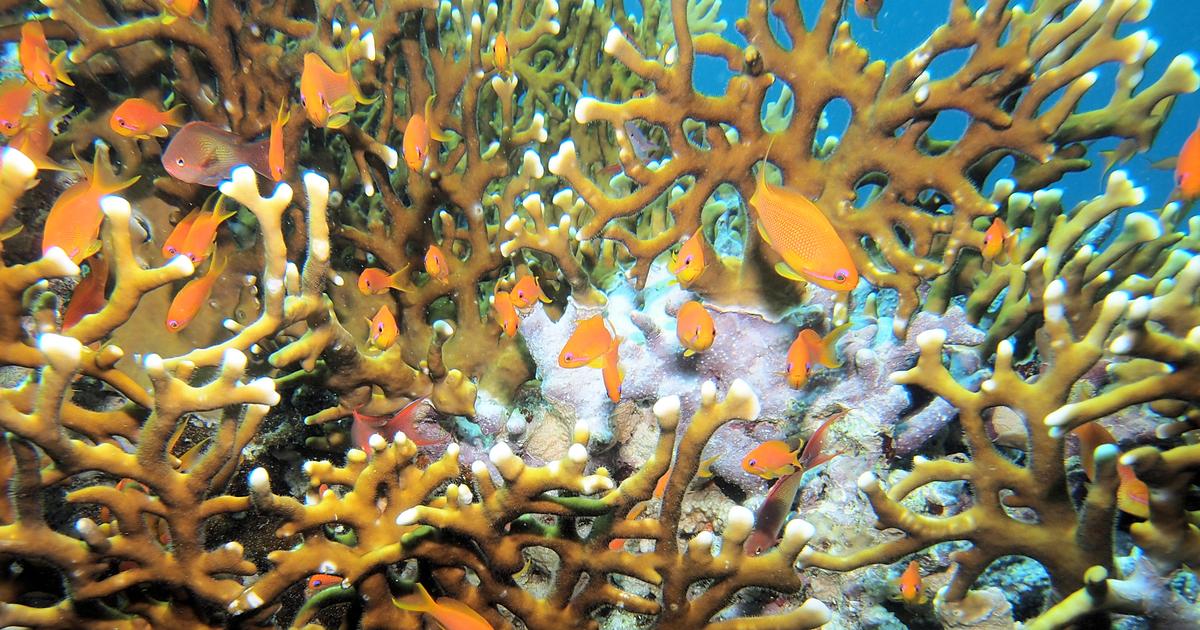Enlarge image
Reefs and atolls of the Great Barrier Reef
Photo: Ingo Schulz / McPHOTO / imago images
The Great Barrier Reef is not doing well.
In fact, the reef has been a UNESCO World Heritage Site for 40 years because of its unique flora and fauna.
But climate change and the associated warming of the oceans have been bleaching the corals for years.
Their population has declined by 50 percent, and in the waters of many of the around 2500 individual reefs there is not much left of the former variety of colors.
Researchers are therefore working on methods to protect the reef.
A team of scientists from Southern Cross University in Lismore in the Australian state of New South Wales relies on geoengineering.
To put it simply: the researchers artificially create clouds.
They reduce the sun's rays on the ocean surface because they reflect the light back into space.
And so ultimately slow down the speed at which the water is warmed up and the coral bleaching is heating up.
For the Cloud Brightening project, the first of its kind, the Australians spray droplets of seawater into the sky.
A kind of cannon sprays a fine mist from a converted ferry.
The turbine releases microscopic water particles.
They rise in the atmosphere and condense the existing clouds.
This reduces solar radiation to the largest coral reef ecosystem in the world.
The water droplets evaporate, leaving tiny salt crystals that rise into the atmosphere, causing the water vapor to condense around them and form clouds, according to project leader Daniel Harrison, an engineer at Southern Cross University. "If we do this for a long period of time, from a few weeks to months, while the corals are experiencing a heat wave in the ocean, we can actually lower the water temperature in the reef," says Harrison. However, there are still many unanswered questions. So you are sure that you can bring the particles into the clouds, but it is not yet certain how the clouds will react.
In March, the end of summer in the southern hemisphere, the researchers made the second attempt for the project.
This is when the water around the reef off the northeast coast of Australia is hottest and most of the corals are threatened with bleaching.
The data have not yet been scientifically published.
But in an article in the journal Nature, Harrison was optimistic that the technology might perform even better than computer models would suggest.
According to Harrison, initial data analyzes showed that reducing the light over the reef by six percent in the summer would reduce the bleaching stress for the undersea ecosystem by 50 to 60 percent.
In principle, many view geoengineering technology as both ecologically and ethically critical.
In some approaches, too high investment or energy costs are criticized.
Environmentalists had even protested against the Australian project.
Some overseas scholars have also expressed concern that the Australian group has published little about its work.
For some, the risk of possible side effects from major interventions in nature, from solar radiation-influencing techniques such as "Solar Radiation Management" (SRM), which also includes current research (read more here), seems too great.
Geoengineering could also lead people to stop fighting global warming and rely on the possibilities of technology.
Harrison emphasizes that the technology can only be used locally and does not work in the long term.
The effect of the artificial clouds would decrease over time, according to the researchers.
The system is not a reason to stop measures against climate change and not to reduce carbon dioxide emissions any further.
joe / Reuters









